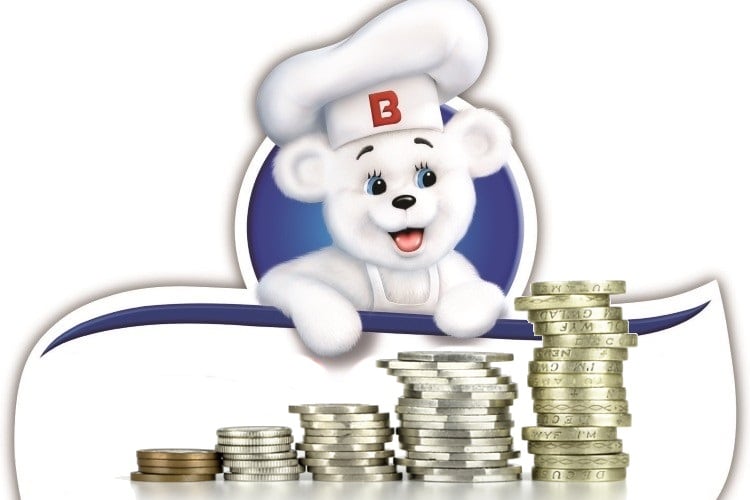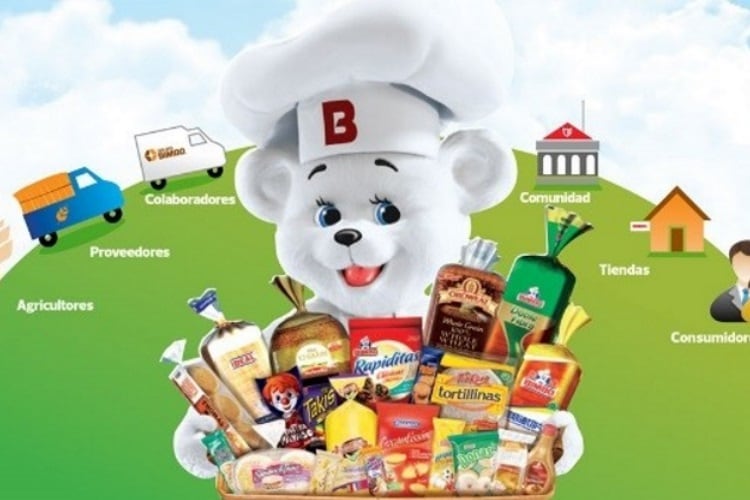Chairman and CEO Daniel Servitje said Bimbo’s topline performance was ‘exceptional’ in the second quarter, punching in a record level of sales and grabbing broad-bases share gains across its portfolio.
Bimbo – which has been recognised as one of the World’s Most Ethical Companies six times – regularly reports record levels, evident of its popularity. In fact, Kantar Brand Footprint 2022 ranked the Bimbo brand as the most chosen food brand within households in Mexico and Latin America.
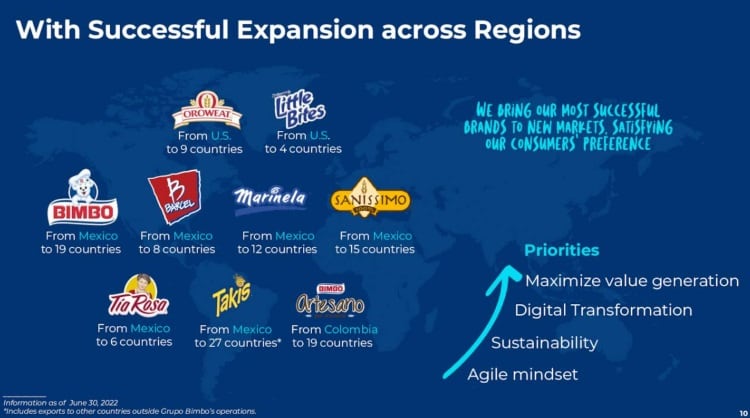
“Our volumes strongly grew across all our regions as a reflection of the high demand we are experiencing as our brands continue to resonate with our consumers. We will continue to invest in our brands as we move forward,” said Servitje.
For the three months ended 30 June 2022, net profit rose to 6.1 billion pesos ($305m), the company said in a filing to Mexico's main stock exchange.
Revenue reached a record level at Ps. 96,434m ($4.6m) – an increase of 18.1% from the year-ago period – attributed to a favourable price mix and volume performance across every region.
EBITDA for the quarter jumped 12.5% to Ps. 13bn ($629m).
Despite the historic levels, Bimbo’s CFO Diego Gaxiola said the company was doing a step dance to cope with the higher commodity prices and overall inflationary environment.
“We are pulling several levers to offset the rising inflation, including revenue growth management strategies, our category and product mix, pricing actions, productivity initiatives, and we continue to proactively look for restructuring opportunities,” said Gaxiola.
“We will continue this approach throughout the year to proactively look for restructuring opportunities across the value chain and to deploy our digital transformation strategy,” added Servitje.
“Looking ahead to the second half of the year, we remain confident we will be able to reach our goals and guidance. We expect to see continued strength in our sales, driven by innovation, efficient revenue growth management and efficiency to help offset continued inflection.”
In May, Bimbo announced it was backing an initiative by the Mexican government to tame prices amid rising inflation and put a price freeze on its white bread for six months.
Breakdown of regions
In North America, net sales increased 16.3% to Ps. 49,452m ($2.39m), particularly driven by premium breads and snacks.
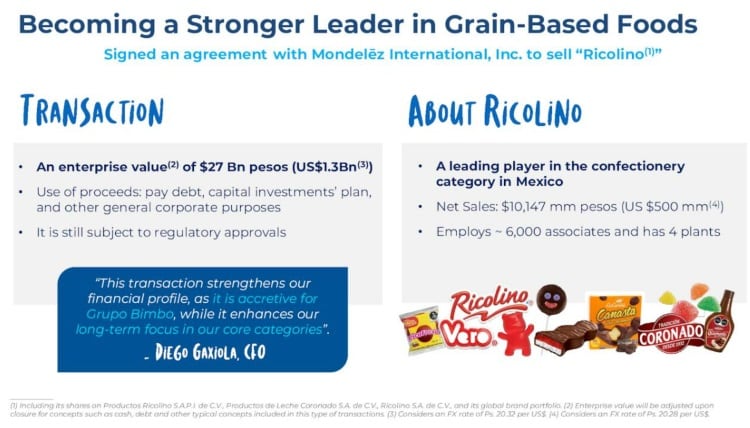
In April, Bimbo agreed to sell its confectionery business Ricolino to Mondelez International for around $1.3bn. Servitje said they were still waiting for the authorisation from the authorities on the divestiture, expected to happen in the fourth quarter.
Alfred Penny, president of Bimbo Bakeries USA, added, “We put a recent price increase into the market in the US [and] our business has held up well. We’re continuing to evaluate in a really difficult inflationary environment, the need for potentially additional pricing later in the year. The inflation pressures continue to be strong pretty much across the board and I think our Q2 results are some evidence of that.”
Net sales in Mexico grew 21.6% to Ps. 31,768m ($3.47m), attributable to bread, sweet baked goods, snack cakes, cookies and snacks in the convenience channel.
Net sales in EAA grew 7.4% to Ps. 8,906m ($431k), mostly driven by Spain and Portugal from its acquisition of Medina del Campo in 2021, “partially offset by a challenging environment in China, mainly related to COVID-19 lockdowns,” said Servitje.
Bimbo’s Latin Centro division also reached record levels for the quarter – 30.8% increase to Ps. 9.641m ($466k) – benefitted by contribution from the acquisition of Aryzta do Brazil in 2021.
Looking ahead, COVID, cost increases and consumer behaviour
Gains were also made on the sustainability front, with the company’s operations in Ecuador fully running on 100% renewable electricity: the 22nd Grupo Bimbo country running with 100% renewable electricity.
Bimbo now forecasts high single-digit growth for its yearly earnings before interest, tax, depreciation and amortization (EBITDA), up from the previous range of mid-to-high single digits. It also upped its top-line guidance for the year from “low double-digit growth to low-to-mid teens,” Gaxiola added.
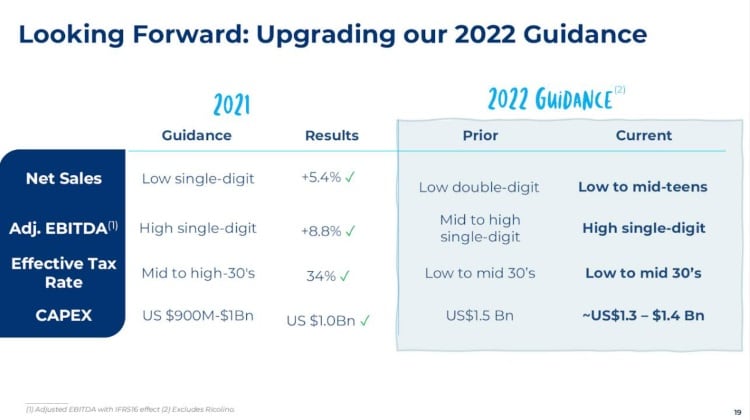
In conclusion, Penny said the company had been impacted by two major global situations, compared to where it was 4-5 years ago.
“The first is the obvious one, which is the impact that COVID has had on consumer behaviour and consumption at home – in home.
“If you had asked me maybe a year ago [if] that was going to continue, I would have been sceptical, and I would have probably said I think it might revert to a degree to more food away-from-home consumption. But the reality of it is that really hasn’t panned out.
“Now we’re 2.5 years into the COVID pandemic [and] I think consumers have discovered that they can consume more food at home with value, whether they do that by e-com buying or click-and-collect; certainly, that has been a huge shift that the industry hadn’t experienced prior.
“The second thing I would say that impacts the industry results overall is that, certainly in recent months, we’re dealing with a level of inflation that, at least, in my 40 years in the industry, I’ve never seen in terms of the depth and breadth of it.
“We’ve had prior years where we’ve had significant commodity inflation or a runoff in wheat and then it came back down. But we’re in a different place altogether now with broad-based inflation and pressuring almost all of our input costs.
“I think that’s given not just our industry, but many industries, sort of a wake-up call of how you deal with that and I think the result of that is that pricing has been put into the market that needed to go into the market.
“So far, it’s held up, but we’ll see where we go from here. But to me, the single biggest shift is the shift in consumer behaviour to food consumed at home, which certainly plays into the business that we’re in," said Penny.


